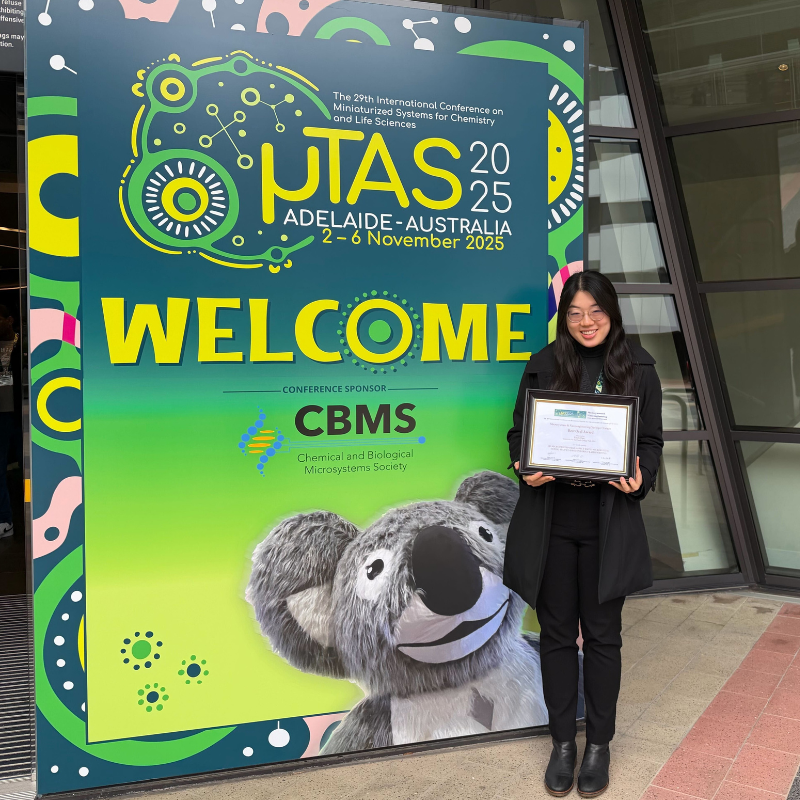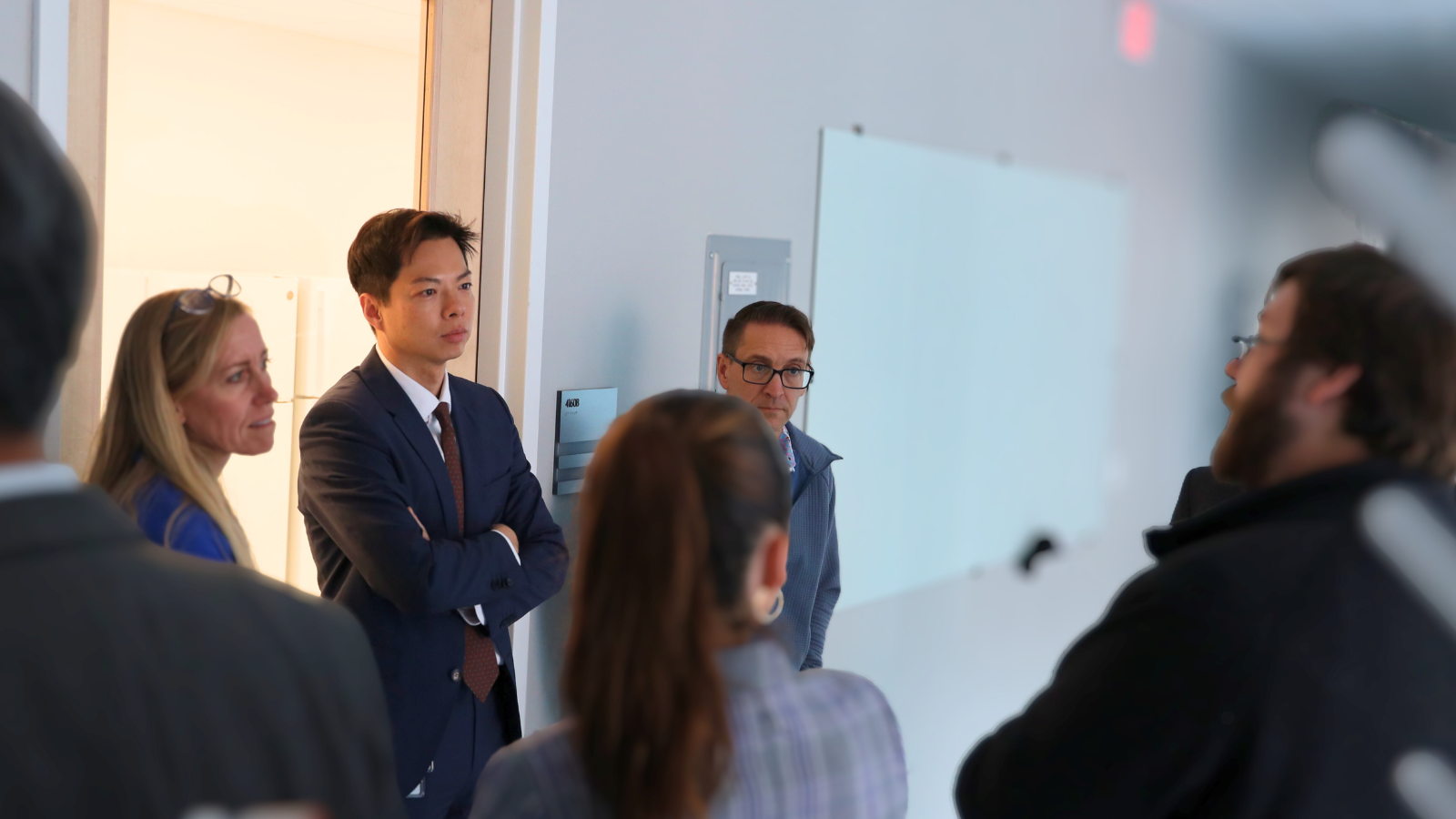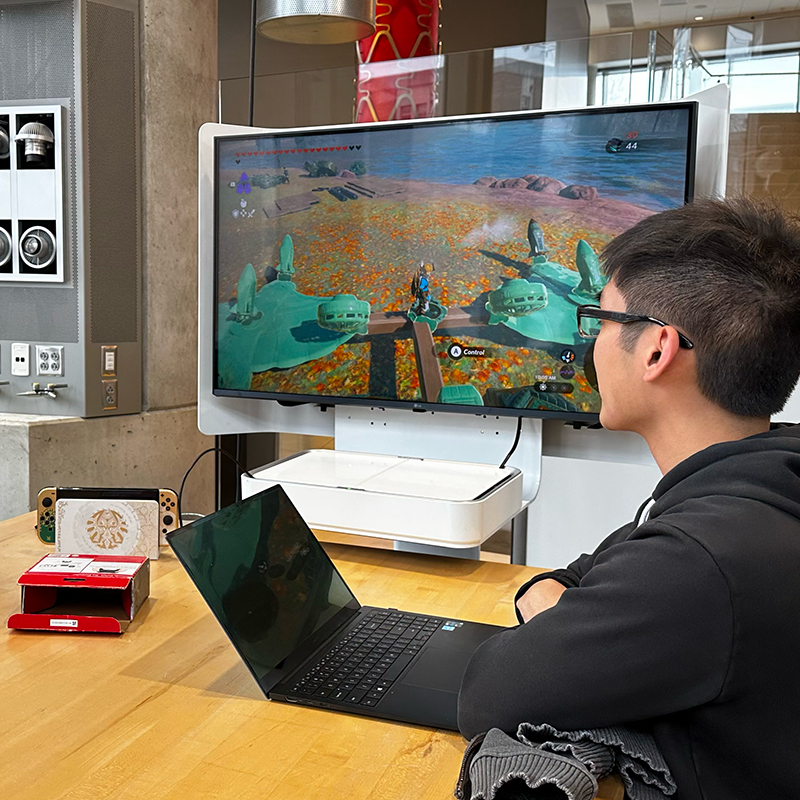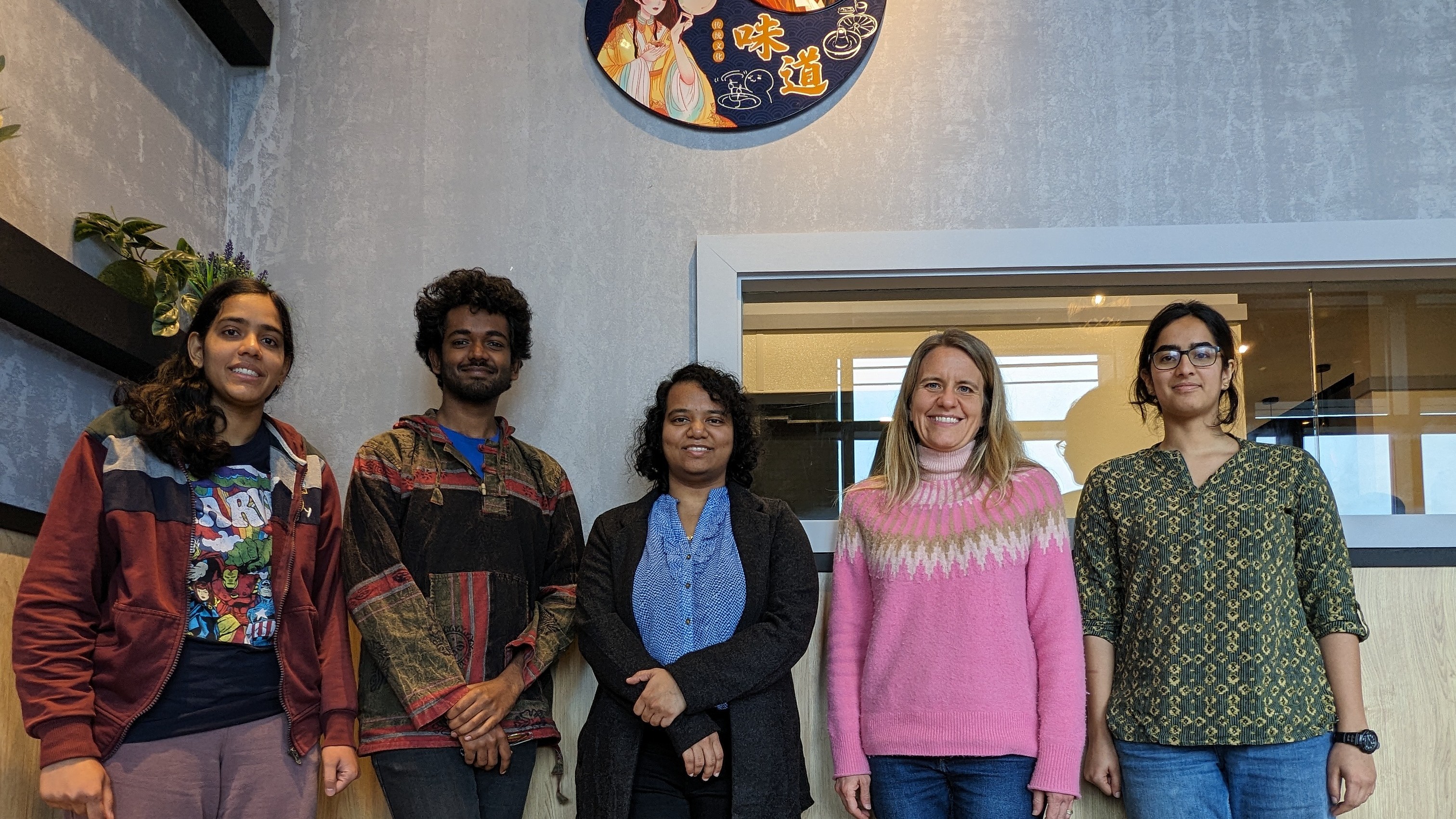News Story
MIPS Program Awards $4.7 Million to Maryland University Researchers
The University of Maryland's Maryland Industrial Partnerships (MIPS) program today announces it is awarding $4.7 million to Maryland university researchers to help 16 local companies develop technology products.
The projects, which team companies with universities across the state, include gene-silencing for cancer treatment, a new cardiovascular diagnostic device, advanced chemical detection, distributed heating and cooling, fertilizers and soil amendments made from both fish waste and other mixtures, agricultural stormwater treatment, an heirloom tomato juice production system, temperature-detecting gel, a drug to treat lung fibrosis, advanced oyster seeding system, electronic baseball home plate, mobile solar milk chiller, and both a vehicle and sensor technology for inspecting bridges.
Companies are contributing $3.3 million and MIPS $1.4 million to the jointly funded projects. The Maryland Department of Natural Resources and the Environmental Protection Agency provided additional funding. All funding goes to support the work of faculty and graduate students for each project.
For the first time, projects include researchers from St. Mary's College of Maryland and Morgan State University.
Winning projects, listed by company, location, participating faculty, funding amount, and description, include:
-
Birich Technologies LLC (College Park) and Jonathan Dinman, professor, University of Maryland, College Park ($149,251): developing a gene-silencing technology as both a research tool and potential cancer therapeutic.
-
Cordex Systems LLC (College Park) and Benjamin Shapiro, associate professor, University of Maryland, College Park ($150,502):developing a new medical device for detecting and monitoring cardiovascular disease.
-
Diagnostic anSERS Inc. (College Park) and Ian White, assistant professor, University of Maryland, College Park ($135,000): developing a new highly sensitive chemical sensing device fabricated on paper using inkjet printing.
-
Earth Networks (Germantown) and Jungho Kim, professor, University of Maryland, College Park ($1,437,617): improving the e5 residential energy efficiency and demand response service.
-
Fish Pro Grow (Bethesda) and Y. Martin Lo, associate research scientist, University of Maryland, College Park ($137,996): developing technology to convert scraps from fish processing plants into an organic liquid fertilizer that could decrease both landfill demand and nutrient runoff into the Chesapeake Bay watershed.
-
GreatGrow Inc. (Rock Hall) and Samuel Geleta, associate professor, Salisbury University ($149,365): developing a soil amendment that could dramatically increase crop yields and reduce pollution in the Chesapeake Bay watershed.
-
High Impact Environmental Inc. (Chestertown) and Allen Davis, professor, University of Maryland, College Park ($181,750):developing a cascading stormwater treatment system for the agriculture industry to reduce runoff into the Chesapeake Bay watershed.
-
Lenderking Caging Products. (Millersville) and Louis DeTolla, professor, University of Maryland, Baltimore ($242,469): developing an energy-saving, ventilated rodent cage that increases animal welfare.
-
Luke's Premier Foods LLC (Princess Anne) and Jurgen Schwarz, director, agriculture, food and resource sciences, University of Maryland, Eastern Shore ($447,828): improving an on-site commercial-scale process for producing premium quality tomato juice and tomato nectar from heirloom tomatoes.
-
Prasidiux LLC (Bowie) and Srinivasa Raghavan, professor and Patrick & Marguerite Sung Chair, University of Maryland, College Park ($236,999): developing gels that indicate exposure to cold temperatures.
-
SAJE Pharma LLC (Baltimore) and Sergei Atamas, associate professor, University of Maryland, Baltimore ($135,000): preclinical trial of a drug for lung fibrosis.
-
Shore Thing Shellfish LLC (Tall Timbers) and Robert Paul, professor, St. Mary's College of Maryland ($130,576): developing a technology for "setting" oysters.
-
Spessard Manufacturing (Hagerstown) and Christopher Davis, professor, University of Maryland College Park ($134,999): developing a baseball home plate that will detect balls and strikes by sensing the height, lateral position, and speed of a baseball passing over it.
-
Sustainable Design Group (Gaithersburg) and Hilkat Soysal, lecturer, physics and engineering, Frostburg State University ($452,587): developing a self-contained bulk milk chiller for use in remote villages where electricity is either unreliable or unavailable.
-
Sustainable Infrastructure LLC (Baltimore) and Monique Head, assistant professor, Morgan State University ($408,632): developing a state-of-the-art bridge inspection vehicle linking bridge data collected from multiple sensors with proprietary software.
-
Tauros Engineering (Potomac) and Kaye Brubaker, associate professor, University of Maryland, College Park ($141,000): developing computational modeling tools that simulate the hydro-dynamic sediment erosion and deposition processes associated with damage to civil infrastructure.
This is the 51st round of MIPS grants. Projects are co-funded by MIPS and participating companies.
Part of the Maryland Technology Enterprise Institute (Mtech), an initiative of the A. James Clark School of Engineering at the University of Maryland, MIPS is in its 26th year, providing matching grants for technology product development projects that team Maryland companies with researchers in Maryland public universities.
Blockbuster and emerging products developed by Maryland companies have benefitted from MIPS, including Martek Biosciences’ nutritional oils, Hughes Communications’ HughesNet™, MedImmune’s Synagis®, Black & Decker’s Bullet® Speed Tip Masonry Drill Bit, WellDoc's mobile diabetes management platform, and CSA Medical's diseased-tissue ablation device. Products with MIPS projects have generated more than $25.2 billion in revenue and added thousands of jobs to the region.
MIPS has supported research projects with more than 500 different Maryland companies since 1987.
MIPS recently released results from an independent study titled "An Analysis of the Impacts of MIPS Program Spending and the Commercialization of MIPS Funded Projects on the State of Maryland," by Richard Clinch, from the Jacob France Institute at the University of Baltimore. That study found that:
-
MIPS Products Generate $3 Billion in Sales, Support 3K+ Jobs in One Year
MIPS products generated over $3 billion in product sales and supported 3,615 ongoing jobs in Maryland in calendar 2011 alone. When the multiplier-based economic impacts associated with this activity are included, the economic impacts associated with the production and sale of these commercialized technologies total $4.8 billion in economic activity in Maryland, supporting 15,191 jobs earning $1.1 billion in labor income during 2011. -
MIPS Pays for its Lifetime of Funding in One Year
The economic impacts associated with MIPS-supported technology generated an estimated $87.3 million in state tax revenues in the year 2011 alone, the latest year for which complete data was available. These estimated one-year 2011 state tax revenues significantly exceed the $37 million lifetime costs of the MIPS program. An estimated $70.6 million in local government revenues was also generated by MIPS supported technologies in 2011. -
MIPS Projects Attract $884.2 Million in Additional Funding
MIPS lifetime spending over 25 years of $37.0 million assisted in catalyzing the development and commercialization of technologies that have attracted $884.2 million in additional grant, debt, equity, and venture capital funding into Maryland. -
MIPS-Supported Companies Acquired for More than $18 Billion
Several MIPS-supported companies have been acquired over the past few years and the acquisition cost of these companies has totaled over $18.0 billion dollars.
Read the full report online here: http://mips.umd.edu/docs/reports/JFI_MIPS_Report_2012.pdf.
Published February 20, 2013









